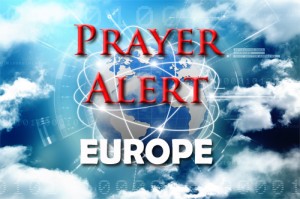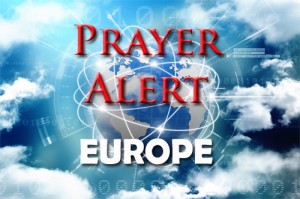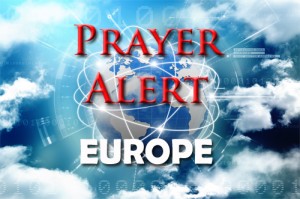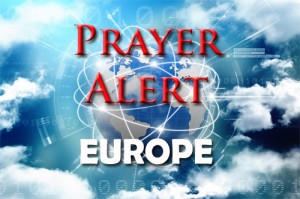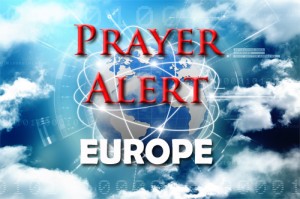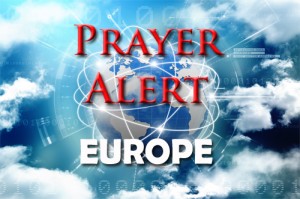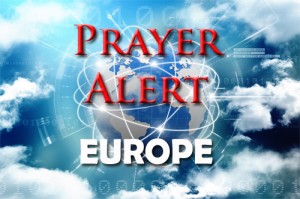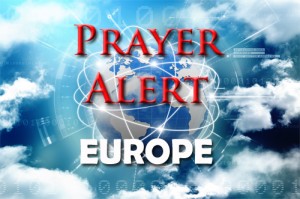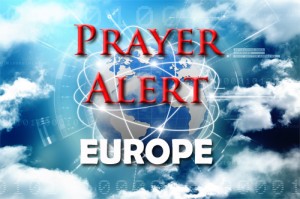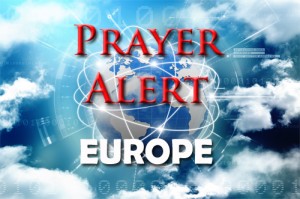Displaying items by tag: Europe
European Christianity divided along political lines
The Eurosceptic German right claims that the Alternative for Germany party is the only really Christian political group in Germany, as the ruling CDU has failed to defend the nation’s religious and cultural heritage. In England Malcolm Pearson of UKIP has denounced the political establishment for giving in to politically correct definitions of equality and hate speech, saying he fears it could soon become illegal to assert Jesus’ divinity. Italy’s Northern League are objecting to a prime location in the Florence region being made available for the construction of a mosque. Across Europe, parties on the political right and far-right are talking the language of Christian heritage. In many cases their strongest adversaries include the clergy and bishops of Europe’s Christian churches, with political pronouncements on welfare and migration.
European Christmas traditions
There is a story of Martin Luther walking in the woods in Latvia and creating the first Christmas tree in 1510. Whether or not it is true, the first Christmas tree recorded was in the town square of Riga, Latvia - not Germany. In Argentina Christmas trees are decorated on the Feast of the Immaculate Conception (8 December). Globos are lightweight paper decorations with a light inside that many Europeans release into the sky after midnight on Christmas Eve - hundreds of tiny God-lights in the sky. The Nativity crib scene was first made popular in Italy by St Francis of Assisi in 1223, a year after he had visited Bethlehem and seen where it is believed that Jesus was born. Many Italian families have Nativity cribs in their homes. Croatian Christmas preparations begin on St Catherine's day (25 November) with an Advent wreath of straw and evergreen twigs holding four candles representing hope, peace, joy, and love.
Pope Francis: Lord's Prayer debate
Pope Francis has sparked a debate after saying he wants to make a change to the Lord's Prayer, arguing that the current form wrongly implies that God can lead humans into temptation. The Pontiff said the Roman Catholic Church should adopt a better translation, as the current phrasing is theologically incorrect. It speaks of a God who induces temptation. The French have changed the text to 'do not let me fall into temptation’. The Pontiff said, ‘I am the one who falls, it isn't God who throws me into temptation and then looks on to see how I fell. A father does not do this; a father helps us get up immediately. The one who leads you into temptation is Satan, that's Satan's role. The prayer should say, “When Satan leads me into temptation, give me a hand”’.
Finland: monitoring Palestinian education
EU officials supervise and fund the Palestinian Authority (PA) education system. A series of Helsinki talks examined the new PA curriculum and agreed that the new textbooks stir up further radicalisation and hatred. They concluded that radicalisation is persistent throughout the curriculum, grooming children for martyrdom and jihad war, with a fundamentalist worldview. ‘This curriculum is not only a catastrophe for Palestinian youth but also for the reputation of the Finnish education system, as the curriculum was reviewed under the supervision of Finnish experts and officials,’ said the spokesperson for the EU consultations. An elementary mathematics book asks, ‘If the number of martyrs from the first intifada is X and the number of martyrs from the second intifada is Y, what is the total number of martyrs?’ In basic physics, Newton’s law of gravity is explained by a picture of a young Palestinian aiming a slingshot at an Israeli officer. See
Juncker and wiretapping scandal
The European Commission president’s informal manner at EU meetings has been criticised. He denies accusations that he has a drink problem. Now he must now take urgent steps to explain his role in an illegal wiretap scandal. In 2013 Jean-Claude Juncker resigned as Luxembourg prime minister after his intelligence chiefs were accused of tapping phones, bugging politicians and keeping 13,000 secret files. He denied any involvement, but was dragged back into the scandal after fresh claims that members of his staff had tampered with crucial evidence. Now a secretly recorded telephone conversation between him and his intelligence chief in 2007 shows them discussing an interference that he denies ever authorising.
Europe: prayers for protection
On 9 December it will be one year since the attack on the Christmas market in Berlin. Europe is on a high level of alert for possible terrorist attacks. In many countries there will be Christmas bazaars, street nativity scenes, carols, and other seasonal events. Pray for God to give a double portion of wisdom and discernment to police and military personnel as they work to keep our borders and streets free of terrorists and terror attacks. Pray for God’s perfect networking and communication between those whose job is to detect dangerous individuals, identify and safeguard potential soft targets, and monitor distrusted individuals. May there be early detection of any planned attacks this Christmas. In England in 2016 combat teams worked undercover to protect Christmas shoppers from an attack in London’s Oxford Street. Pray for the success and protection of all undercover workers this Christmas season.
EU / Turkey relationships
Turkey-EU ties are currently marked by mutual resentments and appear to be going nowhere. In a sign of the times, Brussels is withholding 175 million euros in pre-accession funds for Turkey, which on paper remains a candidate for EU membership. Ankara says it doesn’t need EU money or membership, but it is developing ties with individual EU members, which seems to be a search for another kind of relationship with Europe. French president Emmanuel Macron, who has emerged as Erdogan’s principal European speaker, said Turkey is a partner in many crises Europe faces, notably the immigration challenge and the terrorist threat. Countries such as Germany and France are angry about EU citizens arrested in Turkey on what they say are trumped-up charges linking them to the Kurdistan Workers Party (PKK) or the so-called Fethullah Gulen Terror Organisation (FETO). They are accusing Ankara of holding these people hostage.
Europe if Merkel goes
Mrs Merkel brought unity and peace to the EU’s high table, which was unusual as she seldom had much to say. Like many German politicians she was unimaginative about how to stop financial rot from spreading to countries like Italy. But she had an asset that most leaders can only dream of - authority. When she talked, others listened. The arguing stopped. If her present attempts to form a coalition government fail and she steps down, who will have the same effect? The Brexit vote was representative of a big political undercurrent in European politics, a force that was moderated by Merkel. Without her, or anyone else with a unifying idea about the EU, the cracks in its thin ice could become dangerous splits. Emmanuel Macron draws the support of other radicals like Jean-Claude Juncker, but their vision of Europe is at odds with the view of most. Other leaders are silent.
Germany: stabbing escalates
A recent surge of violence perpetrated with knives across Germany draws attention to the deterioration of security in the country. People armed with knives, axes and machetes have wreaked havoc across Germany; committing jihadist attacks, homicides, robberies, raids, sexual assaults, honour killings and other violent crimes. Knife violence occurs all over the place, and many people feel that danger lurks everywhere, with little or no public security. The police admit that they find it difficult to maintain order, day and night; they are being accused of not reporting many crimes, to try not to ‘disturb’ public opinion. However, reports indicate that in 2017 incidents of violence with knives and stabbings will reach record levels.
Austria & Germany: Coalitions
Austrian far-right Party, FPO is talking with conservative party, OVP, and people have been protesting against the administration including FPO. FPO had led in the polls for two years - then Mr Kurz became chairman of the ÖVP and his charisma kept FPO (with neo-Nazi roots) from running the country. To govern Mr Kurz needs a coalition partner, and the FPÖ, was his first choice. Coalition talks began three weeks ago but nothing has yet been agreed. In Germany, coalition talks collapsed after a deadlock on migration and energy caused the FDP to quit negotiations. Angela Merkel faces either forming a minority government, or fresh elections. Many are wondering, ‘Is Europe fending off a populist uprising?’ see https://www.theguardian.com/world/2017/nov/19/german-coalition-talks-close-to-collapse-angela-merkel
